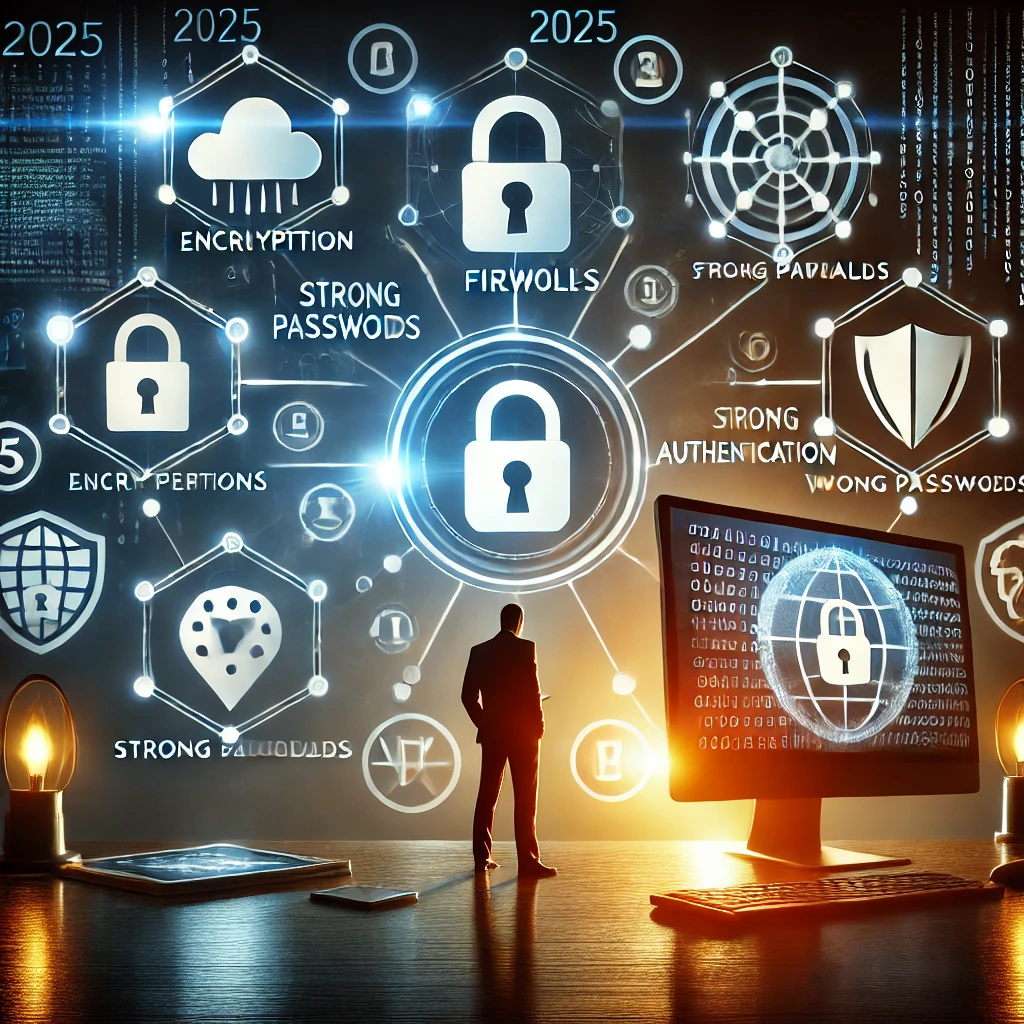
5 Ways to Protect Your Personal Data Online in 2025
Introduction: Why Protecting Your Personal Data is More Important Than Ever
With more people spending time online than ever before, securing your personal data has become a must. In 2025, cyber threats are more advanced, and the need for privacy has never been greater. From social media hacks to data breaches at companies, your personal information is constantly at risk. But don't worry! We've got you covered. In this article, we'll show you 5 effective ways to protect your personal data online.
1. Use Strong, Unique Passwords and Enable Two-Factor Authentication
One of the easiest and most effective ways to protect your personal data is by using strong, unique passwords for each of your online accounts. Avoid using obvious choices like your name or birthdate, and instead, opt for a mix of uppercase and lowercase letters, numbers, and special characters. You can even use a password manager to keep track of these complex passwords.
Additionally, enable two-factor authentication (2FA) on all accounts that support it. This adds an extra layer of security, requiring a second form of identification—like a code sent to your phone—before you can log in.
2. Keep Your Devices Secure with Regular Updates
How to Secure Your Smartphone and Laptop
Another essential step is keeping your devices up to date. Operating system and software updates are crucial because they patch security vulnerabilities that hackers may exploit. For example, if you're using the best budget smartphones of 2025 or a top gaming laptop, ensure that your device’s OS is updated regularly to avoid unnecessary risks.
Enable automatic updates on your smartphone and laptop, and be sure to download free apps for productivity only from trusted sources. You don’t want to accidentally download malware disguised as a useful app!
3. Use a Virtual Private Network (VPN)
Beginner’s Guide to VPNs
When browsing the web, especially on public Wi-Fi, using a Virtual Private Network (VPN) is one of the best ways to protect your personal data. A VPN creates a secure, encrypted connection between your device and the internet, masking your IP address and making it much harder for hackers to track your online activity.
If you're new to VPNs, don't worry—setting one up is easier than you think! Choose a reliable provider, download their app, and simply activate it before browsing. With VPNs becoming more affordable and accessible, protecting your personal information is a no-brainer.
4. Be Mindful of What You Share on Social Media
Social Media Safety Tips
We've all been guilty of oversharing online, but in 2025, it's crucial to be more mindful of what you post. Avoid sharing personal details such as your address, phone number, or vacation plans. Scammers can use this information to their advantage. Instead, opt for privacy settings that limit who can see your posts, and don't accept friend requests from strangers.
Also, don't forget to use strong passwords for your social media accounts, and enable two-factor authentication for added security. This simple step can keep your accounts safe from unauthorized access.
5. Be Careful with Public Wi-Fi Networks
The Dangers of Free Wi-Fi
While public Wi-Fi networks may seem convenient, they are often a hacker’s playground. Using these networks without protection can expose your personal data to cybercriminals. If you absolutely need to connect to public Wi-Fi, make sure you're using a VPN to encrypt your connection. Never access sensitive accounts like banking apps or social media when connected to unsecured networks.
When it comes to protecting your personal data online, taking these precautions is crucial—especially when using shared networks.
Bonus Tip: Use AI Tools to Boost Productivity Without Sacrificing Privacy
Artificial intelligence (AI) is a game-changer for productivity. However, when using AI tools, be sure to check the privacy policies and terms of use to ensure your data isn’t being collected without your knowledge. While AI can help you speed up your work and manage tasks more efficiently, it's vital to protect your data in the process.
FAQs
1. What are the best budget smartphones of 2025 for data security?
While several budget smartphones offer excellent data security features, look for devices with regular software updates and strong encryption protocols. Popular models in 2025 include those from Samsung, Motorola, and Xiaomi.
2. How can I speed up my Windows 11 PC while keeping it secure?
To speed up your Windows 11 PC, try disabling unnecessary startup programs, cleaning up your disk, and upgrading to an SSD. Just be sure to install security updates regularly to maintain data safety.
3. Are there any free video editing software options that respect my privacy?
Yes! Programs like DaVinci Resolve and Lightworks offer free video editing software and are known for being privacy-conscious. Always check the privacy settings to ensure you're not sharing unnecessary data.
4. What are some essential tips for securing my smartphone in 2025?
Use biometric authentication, install security apps, enable encryption, and always update your software. Avoid downloading apps from untrusted sources, and enable 2FA wherever possible.
5. How can I optimize my laptop's battery life without compromising data security?
To optimize your laptop's battery life, adjust power settings, close unnecessary apps, and reduce screen brightness. Just remember to keep security features like encryption and firewall settings active to protect your data.